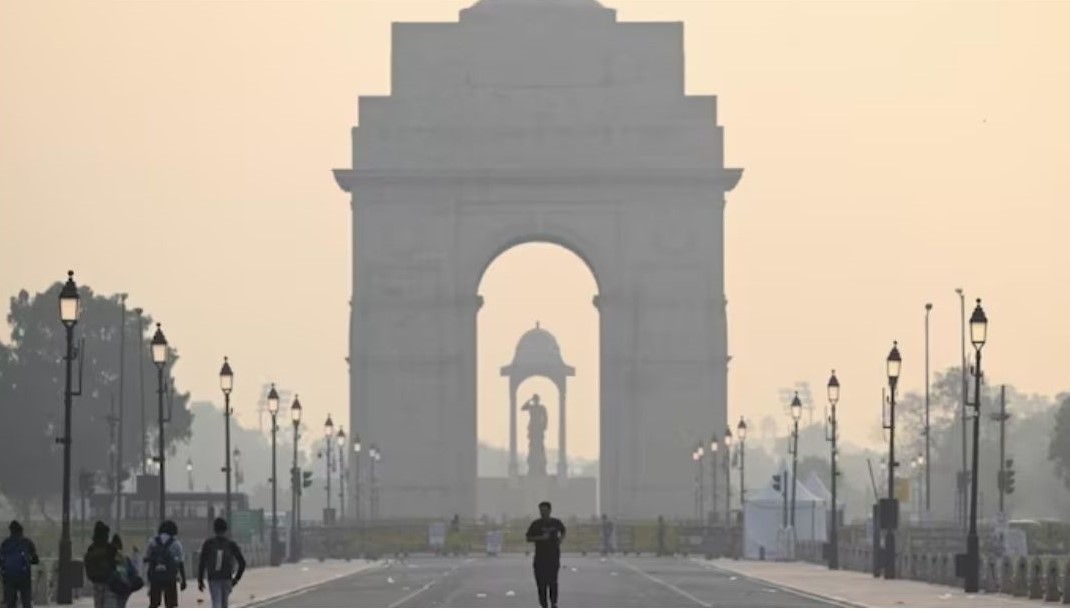Don't have an account?
Login to EaseMyDeal

2023-10-23
178
The national capital of India, Delhi, is waking up to a grave environmental concern as its air quality has slipped into the 'very poor' category with an Air Quality Index (AQI) reading of 306. This worrying shift comes after months of relatively cleaner air, and it's not just a mere coincidence. Unfavorable meteorological conditions, plummeting temperatures, and the onset of stubble burning season are contributing to this environmental crisis. As the people of Delhi grapple with the consequences, it's essential to understand the causes, the measures being taken, and how individuals can safeguard their health amid this alarming scenario.
A Deteriorating AQI:
Over the weekend, Delhi experienced a sharp decline in air quality, with the average AQI plummeting from 248 on Saturday to 313 on Sunday. This is the first time the air quality has slipped to 'very poor' since May, raising significant concerns.
Meteorological Factors:
Anju Goel, an air quality research fellow at The Energy and Resources Institute, points out that the poor AQI can be attributed to a drop in temperature and slow wind speeds. These factors hinder the dispersion of pollution, allowing it to accumulate in the atmosphere, resulting in deteriorating air quality. As per data from IQ Air, Delhi recorded a particulate matter (PM 2.5) level of 296 micrograms per cubic meter of air, nearly 20 times the WHO's recommended level of 15.
Stubble Burning: A Major Contributor:
Another significant contributor to Delhi's air quality woes is stubble burning. The northern states, particularly Haryana, have reported a total of 48 cases of stubble burning this season. The smoke from paddy straw burning accounted for 16% of Delhi's PM2.5 pollution on Sunday, and this could escalate to 30-32% on Monday. It's evident that tackling this issue is critical to improving air quality in the region.
Action Taken: Graded Response Action Plan (GRAP-2):
In response to the worsening air quality, the Commission for Air Quality Management (CAQM) has activated an 11-point action plan as per Stage-II of the Graded Response Action Plan (GRAP). This involves stringent measures aimed at curbing pollution, including:
Delhi Environment Minister's Warning:
Delhi's Environment Minister, Gopal Rai, has emphasized the critical nature of the next two weeks, which include the festive season and farm fires. These factors pose a significant threat to the already fragile air quality in the capital. As part of the response, Rai chaired a review meeting involving 28 departments to ensure the effective implementation of pollution mitigation measures.
Rai identified eight additional pollution hotspots, in addition to the existing 13, where the AQI has exceeded 300. These areas include Shadipur, ITO, Mandir Marg, Nehru Nagar, Patparganj, Sonia Vihar, Dhyan Chand Stadium, and Moti Bagh. He has also instructed the use of dust suppressant powder in anti-smog guns to combat dust pollution, strengthen anti-dust campaigns, and conduct more field visits to check sources of pollution.
The Road Ahead:
The situation in Delhi underscores the need for stringent regulatory measures and increased compliance in combating pollution. While stubble burning remains a concern, other sources, such as construction activities and inefficient cooking stoves, continue to contribute to the problem. Improved regulation, compliance, and a holistic approach to tackling pollution are imperative for lasting change.
As individuals, it's essential to be proactive in safeguarding our health. This includes staying informed about air quality levels, reducing outdoor activities during periods of poor air quality, using air purifiers, and wearing masks when necessary.
In conclusion, Delhi's deteriorating air quality is a stark reminder of the collective responsibility we share in preserving the environment. Measures need to be implemented at both the administrative and individual levels to ensure that the national capital breathes cleaner air and that the health of its residents is protected. The next two weeks are pivotal, and by taking action now, we can hope for a healthier and cleaner Delhi in the future.

Write A Comment